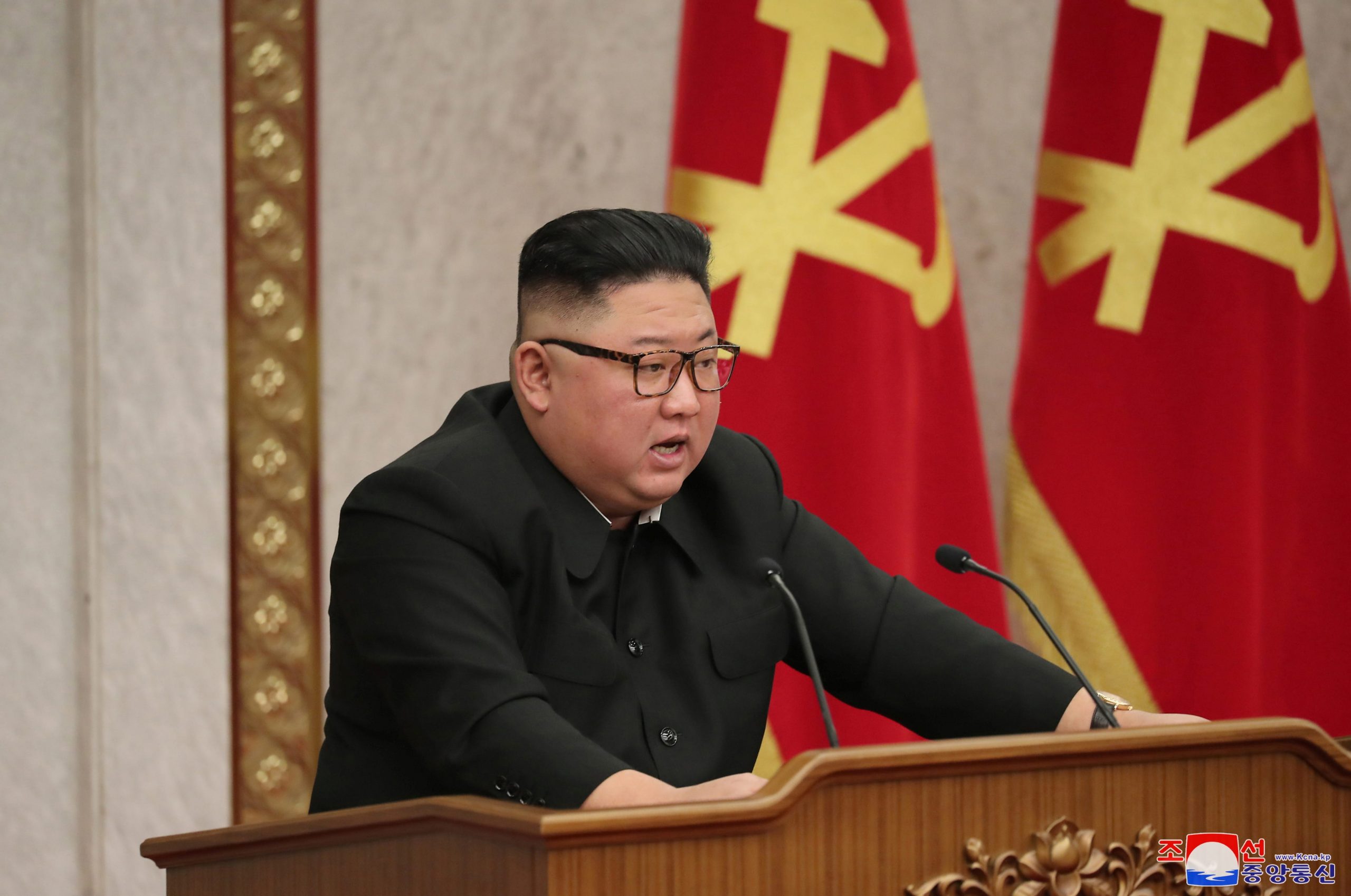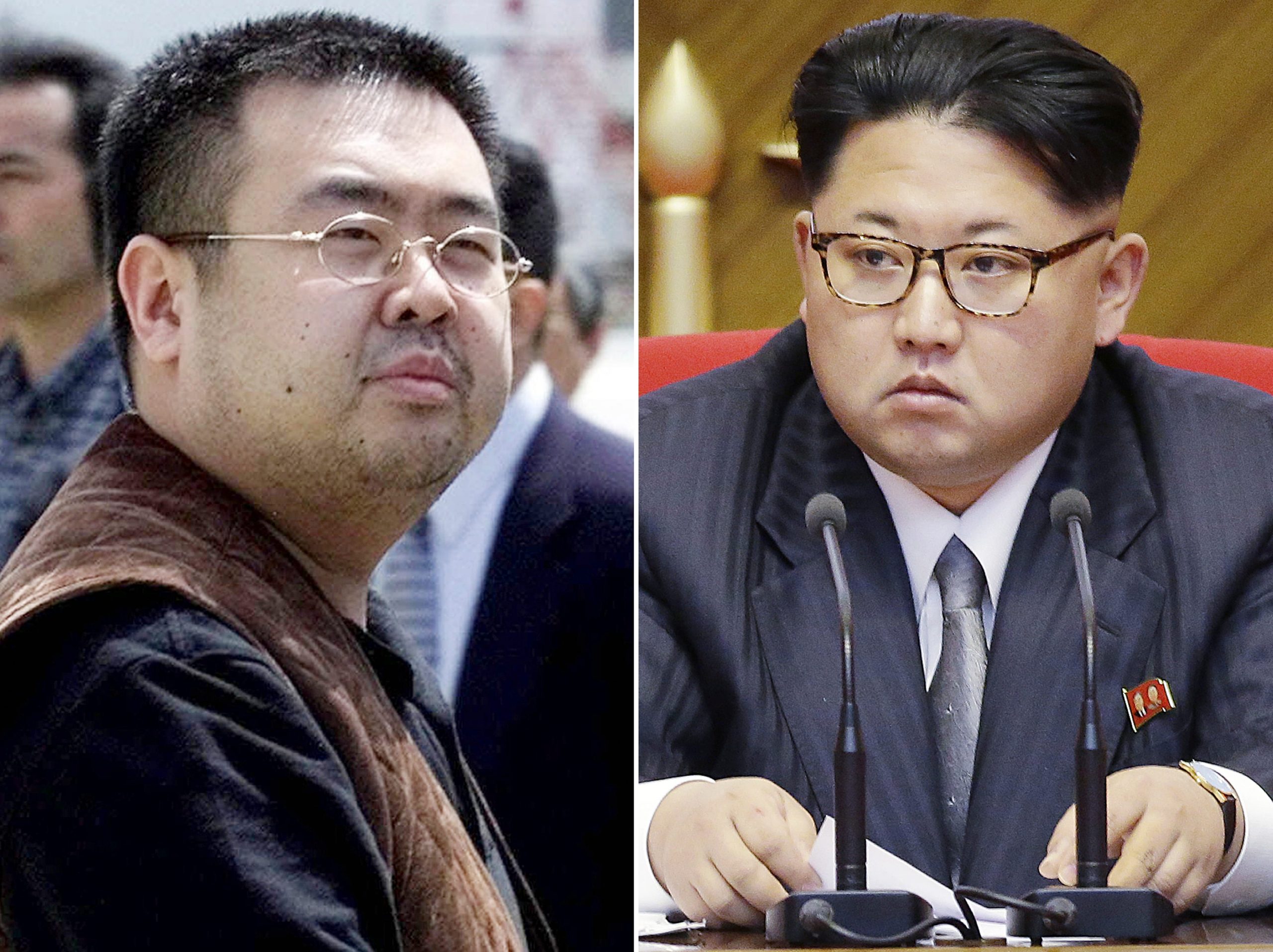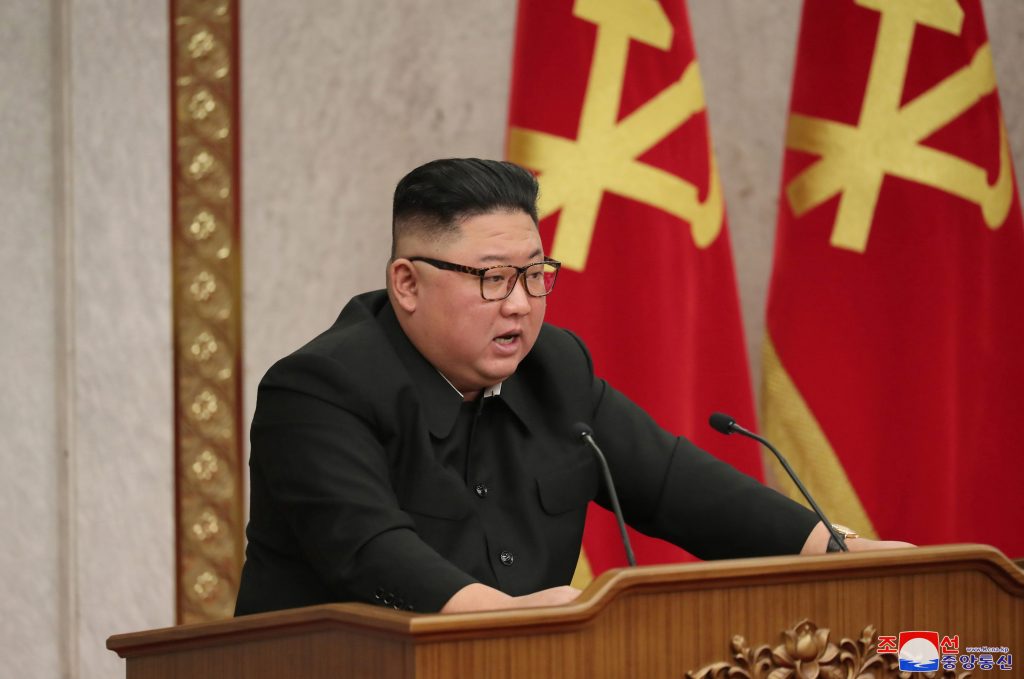
KCNA/Reuters
- In North Korea, an act of terrorism is considered a political gift for the supreme leader, said one former top spy in an exclusive BBC interview on Sunday.
- The regime has organized numerous assassination attempts in the past decade, prompting the US to again name it as a state sponsor of terrorism.
- In one particular case, Kim Jong Un allegedly plotted an assassination of a defector to please his father, said the top spy.
A North Korean defector who was one of the country's top intelligence officials revealed new details about terror attacks that were carried out as a "gift" to demonstrate loyalty to the supreme leader, according to an exclusive BBC interview.
"In North Korea, terrorism is a political tool that protects the highest dignity of Kim Jong Il and Kim Jong Un," a former colonel known as Kim Kuk Song told the BBC's Laura Bicker.
Colonel Kim is a 30-year veteran of North Korea's spy agencies who fled to South Korea in 2014.
One of his jobs was to personally orchestrate the ultimately failed assassination of prominent official-turned-defector Hwang Jang Yop. The order came in May 2009, when Kim Jong Il was suffering from a stroke and his son Kim Jong Un looked to prove himself as the country's incoming successor, the colonel told BBC.
Kim Jong Un sought to create a "terror task group" to kill Hwang as an "act to satisfy the supreme leader," he added.
Hwang, the target, had been secretary of the ruling party in North Korea and chairman of the national assembly before he fled to South Korea and began criticizing the regime in 1997. North Korea wanted his throat slit when it ordered the assassination, said South Korean officials.
In July 2010, two North Korean army majors were jailed after entering South Korea pretending to be defectors while plotting to kill Hwang. The regime denied any involvement, accusing South Korea of staging the attempt to smear it.
However, Colonel Kim said the plot was the "kind of military work is designed and implemented by Kim Jong Un's special orders. It's an achievement."
North Korea's recent history with terror

Associated Press
In November 1987, two North Korean spies embarked on a special mission to disrupt the 1988 Seoul Olympics. Their task was to blow up a Korean Air flight en route to Seoul, using a bomb hidden in a small Panasonic radio that they left behind in an overhead luggage compartment, according to CNN.
The attack succeeded, killing 115 people.
In recent years, under Kim Jong Un, the country has increasingly used terror to control dissent and stoke fear among its neighbors.
In March 2010, the regime sunk a South Korean navy ship and killed 46 people. Six months later, the regime killed two soldiers and two civilians in the bombardment of South Korean island Yeongpyoeong.
In 2011, South Korea's National Intelligence Services captured a man who brought poison needles across the border to kill Park Sang Hak, a defector and pro-democracy activist dubbed North Korea's new "enemy zero."
The same year, a middle-aged South Korean pastor who helped defectors escape the North was poisoned in Dandong, a Chinese border city.
Perhaps the most prominent assassination was that of Kim Jong Nam, the current supreme leader's half-brother. Two women rubbed a nerve agent on his face in 2017 while he was at a Malaysian airport, though they claim they were told it was a prank. The true story of the murder remains murky, as Insider's Alexandra Ma reported.
Still, it is widely believed to have triggered Trump's decision to designate North Korea as a state sponsor of terrorism.
Diplomats familiar with North Korea questioned the move, saying it made little sense for the killing of a family member to be classified as terrorism.
Regardless, Colonel Kim Kuk Song told the BBC the supreme leader would have had a hand in any attack carried out by North Korea.
"In North Korea, even when a road is built, it cannot be done without the direct approval of the supreme leader," he said.
Read the full story at BBC.com.
